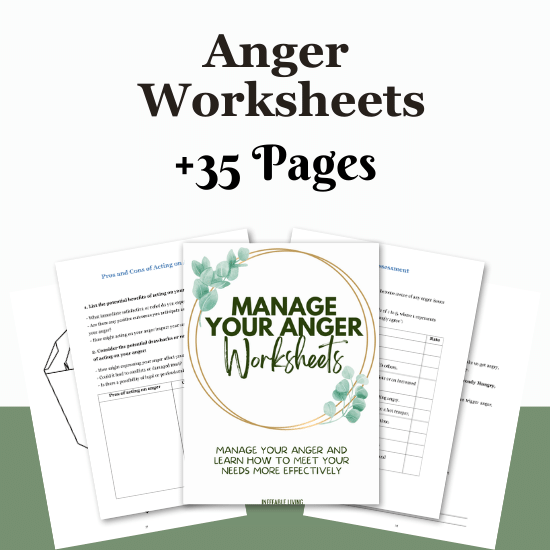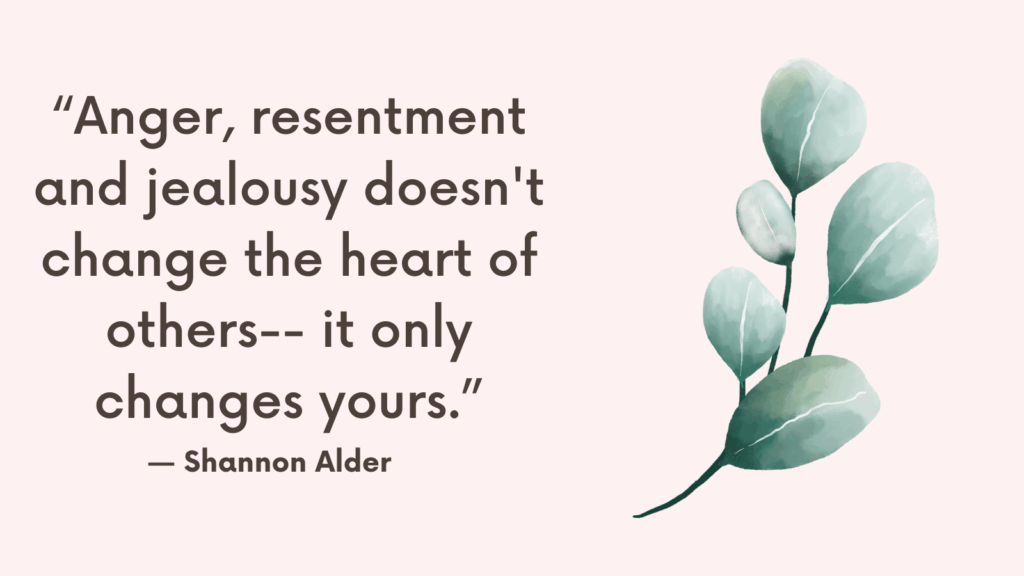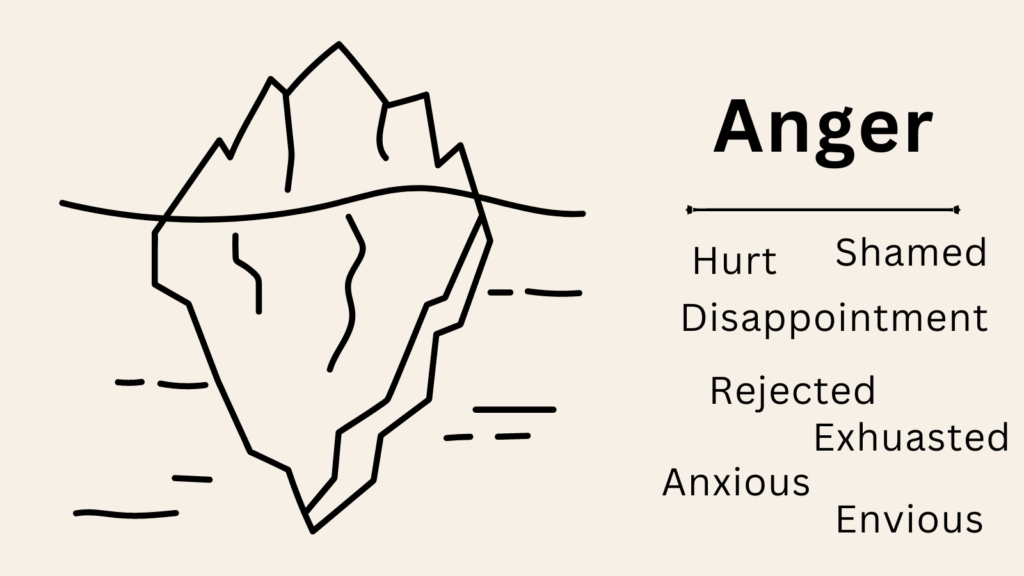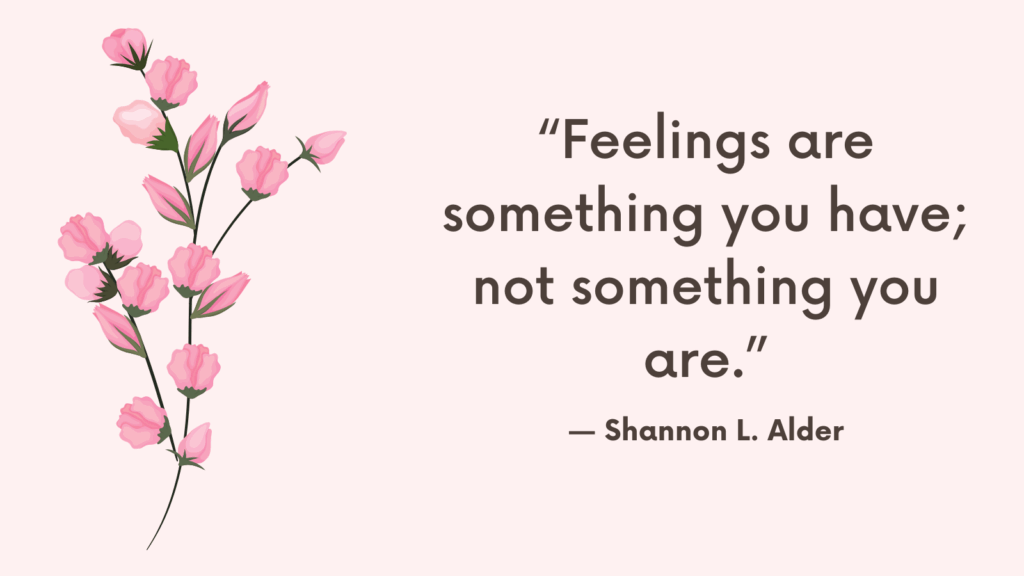Misplaced anger happens when you lash out at those closest to you — not because they caused your anger, but because they feel safe, accessible, or less threatening than the real source. This pattern can damage trust, create guilt, and push away the people you care about most. Learning to redirect your anger appropriately is essential for emotional health and relationship stability.
Healthy vs. Unhealthy Anger
Anger itself is not the problem — how it’s expressed makes all the difference. Healthy anger leads to growth, boundaries, and assertiveness. Unhealthy anger causes harm, disconnection, and regret. Recognizing the difference between the two is crucial for emotional maturity and healthy relationships.
1. Healthy Anger
Healthy anger is managed, expressed appropriately, and rooted in self-awareness. It helps you address problems without hurting others or yourself.
- Is expressed calmly and clearly
You communicate your feelings without yelling, blaming, or threatening. - Motivates constructive change
You use anger to improve situations, set limits, or make better choices. - Respects boundaries
You assert your needs without violating someone else’s rights. - Is short-lived and processed
You feel it, express it, and move on without holding grudges. - Leads to resolution and understanding
It helps you and others learn, grow, and strengthen your relationships.
Related: Beyond Just Anger: How to Manage Intermittent Explosive Disorder?
2. Unhealthy Anger
Unhealthy anger is reactive, uncontrolled, and often destructive. It leaves damage in its wake — emotionally, physically, and relationally.
- Is explosive or suppressed
You either lash out in rage or bury your anger until it builds up and explodes. - Results in blame, insults, or threats
It becomes a weapon, hurting others emotionally or physically. - Violates others’ boundaries
It pushes people away, creates fear, or leads to abuse and control. - Is prolonged and obsessive
You hold onto resentment, replay events, or seek revenge. - Leads to regret, guilt, or isolation
It damages trust, breaks down communication, and often leaves you feeling worse.
How to Stop Taking Anger Out on the Wrong People?
1. Recognize When You’re Misplacing Anger
Notice if you’re snapping at loved ones, coworkers, or strangers over small things. Ask yourself, “Is this really what I’m angry about?” Misplaced anger often feels disproportionate to the situation.
2. Identify the Real Source
Dig deeper to find the root cause of your anger. Are you overwhelmed at work? Resentful about unmet needs? Holding onto past hurt? Naming the true source helps you avoid misdirecting your emotions.
Related: How to Master the Pause Before Reacting?
3. Create a Pause Before You React
Give yourself a moment of silence when you feel the urge to lash out. Step away, count to ten, or take a few deep breaths. This pause helps interrupt automatic reactions and restores self-control.
4. Reflect, Don’t Project
Ask:
- “What am I really upset about?”
- “Am I reacting to this person or to something else?”
- “Is this emotion from today or from the past?”
Shifting from blame to reflection turns anger into a learning opportunity.
5. Own Your Emotions
Use “I” statements to express how you feel without blaming others:
- “I’m feeling stressed and overwhelmed.”
- “I need some space to cool down before we talk.”
Taking responsibility for your emotions creates connection instead of conflict.
Related: Frustration Intolerance: Understanding It and Building Patience
6. Practice Direct Communication
Instead of venting on someone else, address the real issue with the appropriate person when you’re calm. Direct communication builds resolution and prevents resentment from building.
7. Find Healthy Outlets
Channel your anger into constructive activities — journaling, physical movement, art, or talking with a therapist. Releasing emotion in safe ways reduces the urge to lash out at others.
8. Apologize When You Misplace Anger
If you’ve already taken anger out on someone unfairly, own it. A sincere apology like “I’m sorry, you didn’t deserve that” rebuilds trust and strengthens relationships.
9. Build Emotional Awareness
Learn your personal anger patterns. Keep a journal or reflect daily on what triggered you, how you responded, and what you learned. The more aware you are, the more intentional you become.
10. Prioritize Inner Calm
A calm nervous system makes misdirected anger less likely. Prioritize sleep, mindfulness, and self-care to stay balanced. A regulated body helps create a regulated mind.
Related: Top 14 CBT Exercise For Anger Management (+FREE Anger Worksheets)

Conclusion
Taking anger out on the wrong people is a habit that can be broken with awareness, honesty, and practice. When you learn to direct your emotions with intention, you protect your relationships — and build deeper respect for yourself.



